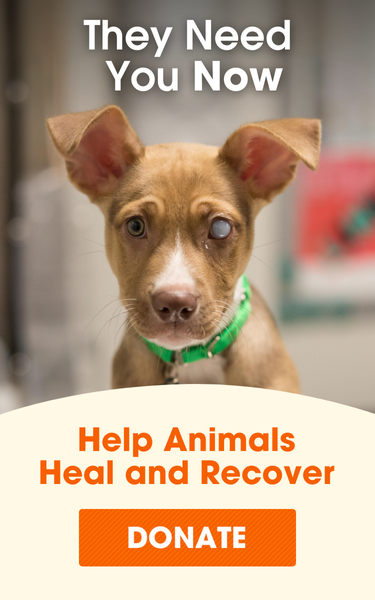
People Foods to Avoid Feeding Your Pets

ASPCA Poison Control Phone Number: (888) 426-4435
ASPCA Poison Control experts have put together a handy list of common people foods to avoid feeding your pet. As always, if you suspect your pet has eaten any of the following foods, please note the amount ingested and contact your veterinarian or poison control at (888) 426-4435.
Alcohol and Yeast Dough
Alcoholic beverages and food products containing alcohol can cause vomiting, diarrhea, incoordination, depression, difficulty breathing, tremors, changes in blood pH, coma and even death. Alcohol is rapidly absorbed after ingestion, so it’s important to take prompt action in seeking veterinary attention if your pet has had exposure.
Yeast dough can rise and cause gas to accumulate in your pet’s digestive system. This can be painful and cause the stomach to bloat, and potentially twist, becoming a life-threatening emergency. The yeast also produces alcohol as a by-product in the stomach environment once ingested, so raw bread dough exposures can develop complications of alcohol toxicity as well (see above).
Chocolate, Coffee and Caffeine
Chocolate, coffee, and caffeine are similar in that their toxicity concerns stem from their methylxanthine concentrations (a group of compounds found in these products). When ingested by pets, methylxanthines can cause vomiting and diarrhea, panting, excessive thirst and urination, hyperactivity, abnormal heart rhythm, tremors, seizures and even death. The darker (higher cacao percentage) the chocolate, or the higher the caffeine content, the greater the risk for toxicity. White chocolate has the lowest methylxanthine content while baking chocolate and cocoa powder have the highest concentrations.
Fruits/Vegetables
- Avocado
- Avocado is primarily a problem for birds, rabbits, donkeys, horses and ruminants including sheep and goats. The biggest concern is for cardiovascular damage and death in birds and rabbits. Horses, donkeys and ruminants can develop swelling of the head/neck in addition to cardiac concerns.
- Citrus
- The stems, leaves, peels, fruit and seeds of citrus plants contain varying amounts of citric acid and essential oils that can cause irritation and possibly even depression if ingested in significant quantities. Small ingestions, such as eating the fruit, are not likely to present problems beyond minor stomach upset.
- Grapes and Raisins
- Tartaric acid is speculated to be the toxic component in grapes and raisins. Since dogs are not able to process tartaric acid, exposure to grapes/raisins can lead to kidney damage.
- Onion, Garlic, Chives
- Onion, garlic and chives are members of the Allium species of vegetables. Allium species can cause gastrointestinal irritation and red blood cell damage, which can lead to anemia (low red blood cells). Although cats are more susceptible, dogs are also at risk depending on the amount ingested.
Milk/Dairy
Because pets do not possess significant amounts of lactase (the enzyme that breaks down lactose in milk), milk and other dairy-based products can cause diarrhea or other digestive upset.
Nuts/Fatty Foods
- Macadamia Nuts
- Macadamia nuts can cause weakness, incoordination, depression, vomiting, tremors and hyperthermia in dogs. Symptoms usually appear within 12 hours of ingestion, with recovery expected within 24-72 hours.
- Nuts
- Nuts, including almonds, pecans and walnuts, contain high amounts of oils and fats. These fats can cause vomiting and diarrhea, and potentially pancreatitis in some pets.
- Coconut and Coconut Oil
- When ingested in small amounts, coconut and coconut-based products are not likely to cause serious harm to your pet. However, the flesh and milk of fresh coconuts do contain oils that may cause stomach upset, loose stools and diarrhea.
Raw/Undercooked Meat, Eggs, and Bones
Raw meat and raw eggs can contain bacteria such as Salmonella and E. coli that can be harmful to pets and humans alike. Raw eggs contain an enzyme that can interfere with absorption of certain vitamins, leading to skin/coat problems. Feeding your pet raw bones may seem like a natural and healthy option that might occur if your pet lived in the wild, however, this can be dangerous for a domestic pet. Dogs/cats might sustain injury or obstruction to the gastrointestinal tract when ingesting bones, which could be serious and require surgery.
Sweet and Salty
- Xylitol
- Xylitol is used as a sweetener in many products, including gum, candy, baked goods and toothpaste. Xylitol can cause low blood sugar (hypoglycemia) and potentially liver damage depending on the amount ingested. Initial signs of toxicosis include vomiting, lethargy and loss of coordination, which can progress to seizures. Liver damage can occur within 12-24 hours, which can also cause secondary issues with abnormal bleeding.
- Salt/Excessively Salty Foods
- Excessive salt intake can produce increased thirst and urination, and sometimes abnormal electrolytes in the blood depending on the amount ingested. Signs of salt toxicity can include vomiting, diarrhea, depression, tremors, seizures and even death.
